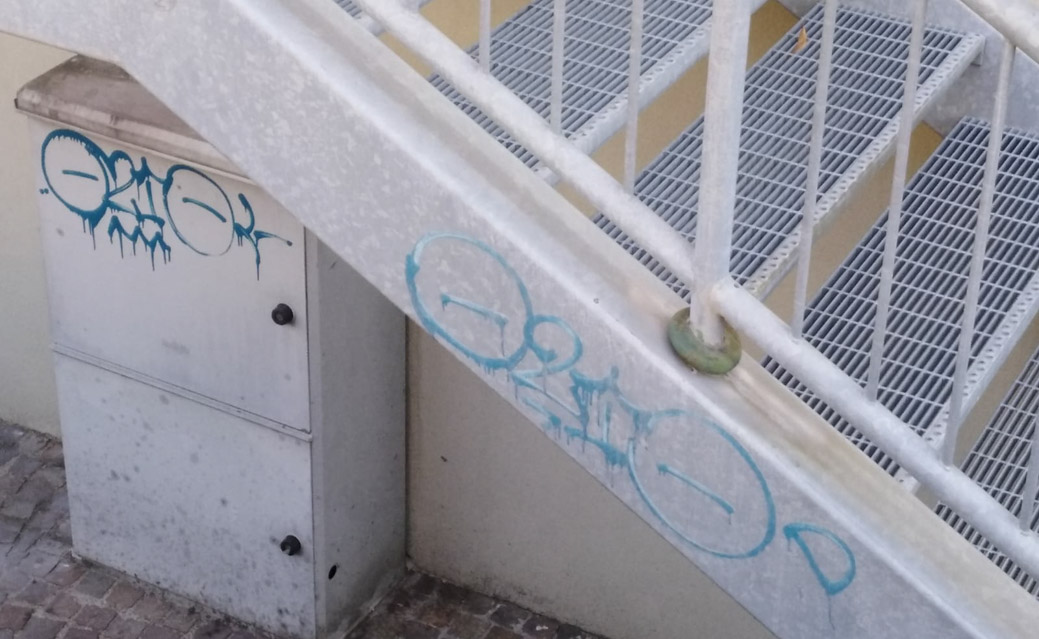Recent TikTok trend results in the rise of vandalism among school properties
Teachers and school administrators reprimand students and introduce serious consequences following a viral social media trend.
A recent TikTok trend has prompted a rise in the incidence of school property vandalism in primary, middle, and secondary schools across U.S. and Canada—especially, in Ontario. ‘Devious Licks’ is the latest viral trend on social media and is quickly gaining popularity on apps like TikTok, Twitter, and Instagram where students post videos of themselves after stealing or damaging school property.
The trend has gained attention from teachers and law enforcement agencies like the Ontario Provincial Police (OPP). The OPP has denounced the “mindless” mischievous acts and their occurrence in school bathrooms in Huron County—resulting in significant damage to toilets, bathroom sinks, hand dryers, and soap dispensers.
In public and separate school boards across the nation, the popular TikTok trend has led to a growing number of reported school bathroom closures which, in light of the Covid-19 pandemic, has sparked major health concerns from a hygiene and sanitation perspective as staff and students were unable to wash their hands.
As per the Canada’s Criminal Code, the trend is punishable by law and can result in possible jail time of up to ten years. Educators are encouraging both elementary and high school students to refrain from recording and uploading videos of themselves destroying and stealing school property to go viral and gain online fame.
Specifically, some social psychologists have suggested that teenagers, especially, are more prone to seeking out activities that award visibility, popularity, and recognition from their peers. Certainly, these experts maintain that receiving digital “likes” or positive online reactions seemingly produces a euphoric emotional response among teens who, due to the coronavirus pandemic, have become isolated because of the shift from in-person to remote classes.
Furthermore, these psychologists allege that the anonymity afforded by the transition to online learning has emboldened students to act more maliciously and in a less accountable manner than they usually would in a face-to-face environment.
School administrators including principals and superintendents at the Pocatello-Chubbuck School District of Idaho have reviewed CCTV security camera footage in an effort to identify and punish those responsible for vandalizing school property. Consequences include suspension, expulsion, and/or making students financially liable for subsequent property repairs.
Comparably, the OPP has urged parents to have a one-on-one talk with their children about the long-term implications of performing the ‘Devious Licks’ trend like having a criminal record and, as a result of their online activities, harm done to their reputation. Some school officials at the Grand Erie District School Board which oversees public education in Ontario’s Haldimand, Brant, and Norfolk Counties have indicated that the costly number of school property vandalism repairs have negatively impacted student education by reducing the amount of funding that would otherwise be invested in learning.
The trend comes in light of a new, equally violent TikTok trend seen earlier this month titled the ‘Slap a Teacher challenge’ which encourages students to physically attack and smack their teachers with an open palm. Similar to ‘Devious Licks’, the trend has incited and resulted in acts of vandalism on public property in various Ontario municipalities like the Town of Goderich where a public park’s picnic tables, gazebo, and bathroom were not only defaced with graffiti but also incurred damage totaling to approximately $3,000.
In a Twitter post, TikTok vowed to moderate searches and remove any content involving these trends as a violation of their Community Guidelines. Likewise, some marketing academics have floated the idea that school boards change existing school policies and student codes of conduct to address the ‘Devious Licks’ trend by either banning the use of smartphones in school bathrooms or classrooms altogether.

